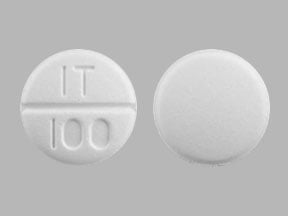
Trazodone Coupons & Savings Card – Discount Prices from $10.53
Generic for: Raldesy
My prescription
Edit
100MG, Trazodone (30 Tablets)
Select pharmacy

CVS
$19.54
COUPON PRICE
Walgreens
$10.53
COUPON PRICE
Albertsons
$11.16
COUPON PRICE
Walmart
$16.70
COUPON PRICETrazodone savings card
Show this card to your pharmacist
Walgreens
$10.53
BIN
ID
PCN
GRP
019876
LHF6A850C8
CHIPPO
LHX
Powered by
Related atypical antidepressants prescriptions
More prescriptions for depression
Related atypical antidepressants prescriptions
More prescriptions for depression
Price history for Raldesy (brand) & Trazodone (generic)
30 Tablets, 150MG
Average retail price for Raldesy
Average retail price for Trazodone
Average SaveHealth price for Trazodone
Our price history data is based on aggregated prescription data collected from participating pharmacies in America. Our prescription data updates daily to reflect the latest price changes. If you notice a missing data point, it means there wasn't sufficient data available to generate a monetary value for that date.
We analyzed Trazodone prices for (150MG, 30 Tablets) over the last 12 months. The average retail price was $36.43, while the average price using the SaveHealth discount card was $18.17. That's a savings of approximately 50.12% when using our Trazodone coupon.
Compared to the generic version, Raldesy had an average price of $293.74 over the same time period. With the SaveHealth savings card, Trazodone is 93.81% cheaper on average than Raldesy.
*Retail prices are based on pharmacy claims data, and may not be accurate when we don't have enough claims.
Trazodone dosage forms
Dosage Quantity Price from Per unit 50MG 15 Tablets $9.50 $0.63 50MG 30 Tablets $9.99 $0.33 50MG 60 Tablets $10.98 $0.18 50MG 90 Tablets $18.13 $0.20 50MG 180 Tablets $21.26 $0.12 100MG 30 Tablets $10.53 $0.35 100MG 45 Tablets $11.30 $0.25 100MG 60 Tablets $12.06 $0.20 100MG 90 Tablets $19.68 $0.22 100MG 180 Tablets $24.36 $0.14
| Dosage | Quantity | Price from | Per unit |
|---|---|---|---|
| 50MG | 15 Tablets | $9.50 | $0.63 |
| 50MG | 30 Tablets | $9.99 | $0.33 |
| 50MG | 60 Tablets | $10.98 | $0.18 |
| 50MG | 90 Tablets | $18.13 | $0.20 |
| 50MG | 180 Tablets | $21.26 | $0.12 |
| 100MG | 30 Tablets | $10.53 | $0.35 |
| 100MG | 45 Tablets | $11.30 | $0.25 |
| 100MG | 60 Tablets | $12.06 | $0.20 |
| 100MG | 90 Tablets | $19.68 | $0.22 |
| 100MG | 180 Tablets | $24.36 | $0.14 |
| 150MG | 30 Tablets | $11.80 | $0.39 |
| 150MG | 45 Tablets | $13.20 | $0.29 |
| 150MG | 60 Tablets | $14.60 | $0.24 |
| 150MG | 90 Tablets | $23.29 | $0.26 |
| 150MG | 180 Tablets | $31.58 | $0.17 |
| 300MG | 15 Tablets | $18.32 | $1.22 |
| 300MG | 30 Tablets | $27.13 | $0.90 |
| 300MG | 45 Tablets | $31.54 | $0.70 |
| 300MG | 60 Tablets | $35.95 | $0.60 |
| 300MG | 90 Tablets | $52.78 | $0.59 |
